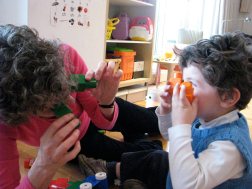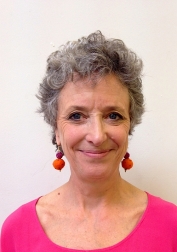Thank you to Gina Davies for our ‘Back To School’ blog.
With the new school term just around the corner, acclaimed autism practitioner, Gina Davies, offers some practical advice and tips for parents of children with autism.
Starting school is a rite of passage for children but for parents of those with autism it’s a major hurdle. There are many new things for children to cope with such as classrooms, uniform, assembly and new faces. For parents it is a new set of people they must trust to understand and support their child. It can feel overwhelming and anxieties begin to run high. It can be tempting to wish you could stick with what you know and avoid change, but it is important to give school the best shot even though it may feel stressful.
Parents can do certain things to ease the level of change their children will face and build confidence and understanding of some of the basics. The practice builds reassuring familiarity and establishes routines and structures that will help everyone hold their nerve on first days, good days and more tricky ones.
School uniforms can be a nightmare for children with sensory issues but it is important in many schools. Buy clothes early, wash them frequently to remove any crisp feeling and wear it in a bit. Get the wary child to handle the uniform by getting them to put it into the laundry or move it to get a t a familiar T-shirt. Practice wearing the uniform for short periods whilst doing something your child finds fascinating to distract them and practice changing into ‘home clothes’ so the child knows this will happen at the end of the school day.
t a familiar T-shirt. Practice wearing the uniform for short periods whilst doing something your child finds fascinating to distract them and practice changing into ‘home clothes’ so the child knows this will happen at the end of the school day.
If a child is enrolled in school dinners, make sure they know how to handle cutlery and aeroplane style dishes if these are used. Help by practicing clear up routines, such as putting dirty plates on the side and cutlery in the washing up bowl. With packed lunches, practice using the lunch box, not just on picnics but also at the table learning how to open containers or packaging.
If a child has significant dietary issues, such as a limited diet that does not include the desired five portions of fruit and veg a day, make the school aware of this serious problem and no amount of popping a carrot in will change it. Schools with healthy eating policies may need help understanding this is an autism related problem rather than a parental preference for feeding their child toast cut into triangles, crusts and sizes matching exactly!
If a child struggles with noise, dinner and playtimes can be a concern so practice dealing with head phones or plugging your fingers into your ears.
If these strategies form part of everyday life at home they are much easier for children to use in more demanding social situations. The problem can’t be removed but it can be dealt with so that children can take part without stress levels getting too high.
Practice things like holding hands and lining up, how to take coats off and hang them up and how to understand words like assembly or dinner hall, when earlier the same place was used for PE. School vocabulary is often different but it can be worked out beforehand and pictures are helpful aids for those who need more visually supported communication.
It helps if parents prepare a simple outline for the school about their child, one A4 page supplied in liberal quantities. The basic information needed is a smiley photo at the top followed by three things the child likes, eg: The computer, painting without an overall, riding bikes; three things they don’t like, eg: Turning the computer off, sharing with others, loud noises; and what helps when things are difficult, eg: It helps if you are quiet when I am upset and give me time to calm down. This approach demonstrates a practical commitment to the home-school communication that is so important in the longer term.
There are many other things that can also be done before term starts, such as driving to and from school regularly and calmly pointing out the school, and practicing getting up at school time for a week before so day one isn’t a stressful rush. It’s about practicing some of the basics so children are not faced with too many complicated social rules and expectations.
week before so day one isn’t a stressful rush. It’s about practicing some of the basics so children are not faced with too many complicated social rules and expectations.
Parents need to think practical and positive and be prepared, at the end of the day, for a weary child who will need calories in and peace and quiet as new routines become established. Parents of autistic children invest hours of thought and effort into their choice of schooling and with some home based ‘rehearsals’, school doesn’t have to feel like stepping into the unknown for children.
Gina is a qualified Speech and Language Therapist who turned her passion for communication development into practical and joyful intervention strategies for parents and professionals dealing with autism. She has worked with hundreds of autistic children in schools, nurseries and residential settings, and directly with parents, carers and families. Find out more at http://www.ginadavies.co.uk/ or follow on Facebook: https://www.facebook.com/ginadaviesautism.
